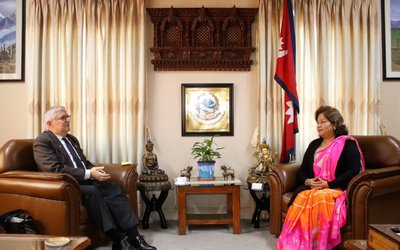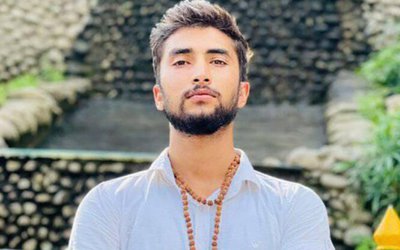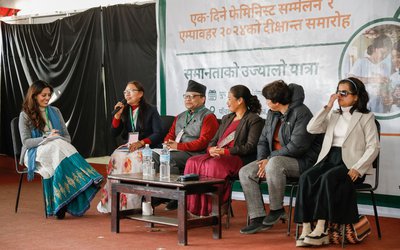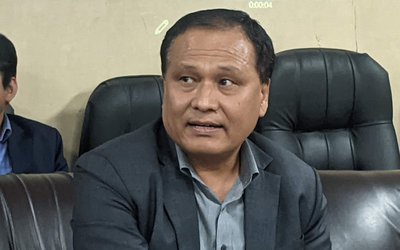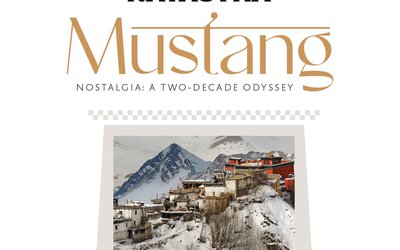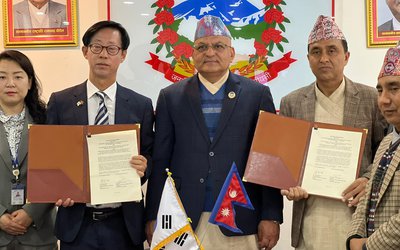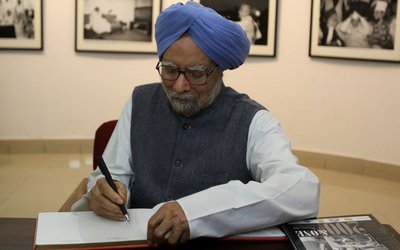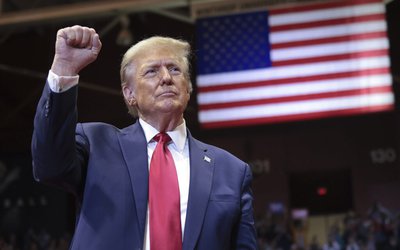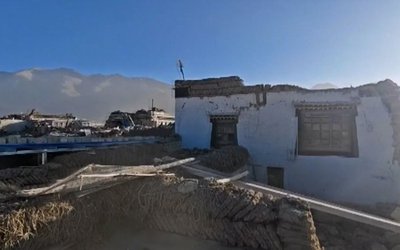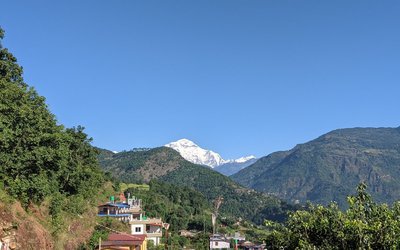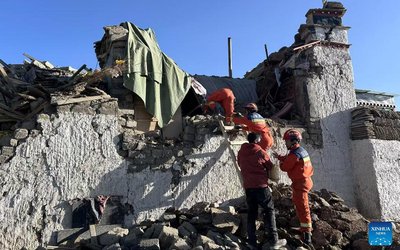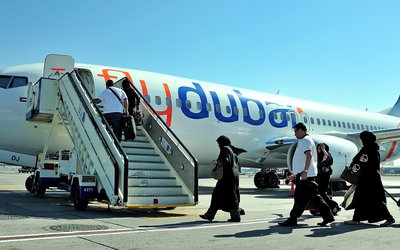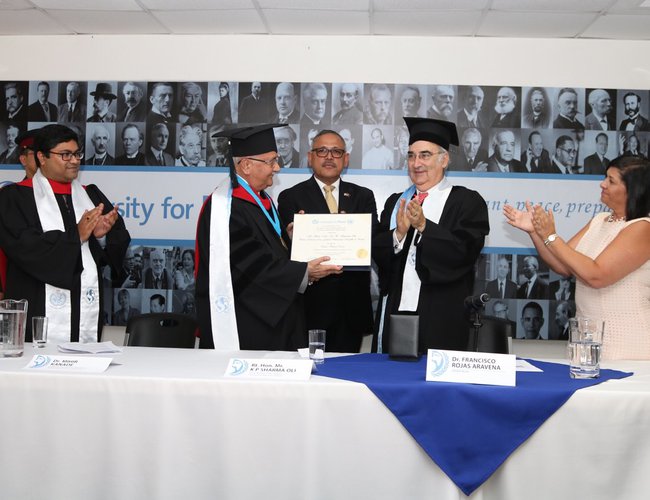
I had heard a lot of good things about Costa-Rica. I am pleased to be in this part of the world, and this beautiful land that hosts the prestigious University for Peace, an important institution that is working towards the realization of the UN charter’s vision for peace and security.
I thought that this was an appropriate forum to share my views on peace and democracy following my participation in the UN General Assembly. Nothing could be a more relevant forum than this University.
I thank the Rector and the whole University family for your kind invitation. What touches me more is your decision to confer the honorary doctorate degree on me today. I am humbled to accept this great honour with a deep sense of gratitude.
For me, this honour is an acknowledgement of my country’s successful peace process and appreciation of peace-loving Nepali people.
Moreover, with humility, I must submit that this recognition is bestowed on a citizen of the country that gave birth to Buddha –an apostle of peace.
I must commend the University for its immense contribution, as a center of learning and research, to promoting the culture of understanding, tolerance and peace around the world,
Today, it is my great privilege to address the distinguished audience of erudite scholars, professors and students, among others.
I am pleased to share with the distinguished audience that Nepal has become party to the agreement establishing the University. This is a reflection of our deep commitment to universal peace.
Last week, I attended and addressed the General Debate of the 73rd Session of the UN General Assembly. The world leaders gathered in the Assembly spoke of a myriad of challenges that we face today.
Backlashes against multilateralism; growing incidences of terrorism and violent extremism; perpetuating poverty and increasing inequality; rising temperature and rising sea levels; continuing civil wars and sectarian strife; persistent food insecurity were among the issues that prominently figured during the Debate.
No matter where the leaders came from; no matter which countries they represented, they were united in their call for a peaceful planet, shared progress and prosperity of humanity.
In the march against many of these woes, the institutions like this University should be in the frontline. For, they have the answer to the many dilemmas we face today.
Education that inculcates tolerance and compassion, respects diversity and accommodates differences while unleashing the infinite potential of human mind is the answer to the problems the humanity faces today.
After all, education is a lifelong process. As a student, one accumulates knowledge and sharpens skills, which later can be used to navigate the world.
Education is also about making oneself updated and relevant, for what we know and what we do not know today may change.
Education that cultivates culture of peace and tolerance while inspiring innovation and invention is the answer to the dilemmas that the world faces today.
Such education is a building block to build the citadel of peace and prosperity.
I, therefore, would like to commend the contributions that this University has made as a hub of knowledge for conflict prevention and peace.
Contemporary world is a confluence of achievements as well as setbacks, of progress as well as perils, of hope as well as despair.
While the world has witnessed impressive economic growth and phenomenal technological progress, the benefit has not accrued to all equitably. Inhumane poverty still persists. Inequality within and among societies and nations is increasing.
Thousands of lives have been lost due to the civil wars and violent conflicts. The menace of terrorism has not abated, and its tentacles threaten the humanity in every part of the world.
Extremism that doesn’t respect diversity and pluralistic nature of human society is showing its ugly head. We must note that diversity is inherent in nature; and no one can go against this.
The ecological balance has been upset. With the temperature rising, glaciers retreating, snow melting and sea level rising, the climate change has accelerated. And, our responses do not match the enormous challenges that are the results of human recklessness.
Unfortunately, it is the countries with negligible emissions that are bearing the heavy price of climate change. This is unfair and thus unacceptable. We together have the responsibility to hand over a habitable planet to our future generations. We must fulfill our accountability towards them.
With the fourth industrial revolution, many groundbreaking achievements have been made. However, the benefit of technological progress has not been judiciously shared among all. The disruptive potential of such change in the world of work is yet to be assessed fully.
With the millions of people on the move, migration today is a mega trend. The response is needed to ensure that people migrate as a choice but not by compulsion. The world needs to come together to ensure the human rights of migrants and to make migration safe, orderly and regular.
Today, the problems are more interconnected than ever. They are not confined to the borders of countries and continents. They are not confined to particular race and nation.
However, the tendencies undermining multilateralism and search for global solutions are gaining ground. At the time when response should be joint and collective, rhetoric of isolationism is a regressive move.
At the time when international cooperation should be made more robust, protectionism and erosion of trust in the entire edifice of rule-based international order is a discouraging move, which is unfortunate.
I believe that the world needs, more than ever, to reassert its faith in multilateralism and collective solutions.
And, it is equally important to resurrect and reinvent the rule-based international order, which is inclusive and accommodative of the voices of all countries, no matter how small or big, rich or poor, developed or developing.
A deeper reflection reveals that many maladies of modern times are rooted in human minds.
The attitude of violence sown in some human minds begets wars and human tragedy.
The excess of greed breeding, in some, begets conflict and corruption.
The veil of ignorance imbedded, in some, begets culture of intolerance.
For this reason, foundation of peace should be built in the minds of people. This is also the essence of culture of peace.
The potential of human mind is not optimally realized. Human imagination, innovation and invention have brought tremendous break-throughs in the history.
And this potential of human mind is not yet fully realized. There are millions of people living in backwardness, who, if provided with proper education and opportunity, will be instrumental in rowing the raft of progress. We have to identify the willing minds and invest in them for their fuller development.
Not all people are equal in terms of their capacity. Not all share similar interest in the same subject. Therefore, the role of education is to identify and spur the hidden individual potential through appropriate tools including counseling.
Memory power, and creative ingenuity as well as imaginative power are the two aspects that make human minds superior to others.
Prosperity and progress in isolated enclaves cannot sustain forever if a large chunk of humanity is lagging behind without being able to realize its full potential.
Education should enable human beings to harness the nature’s enormous potentials while bridging the gaps between haves and haves-not and ending deprivation and backwardness. Doing so will contribute to defeat the cause of social tension, discord and conflict.
The utility of education lies on its ability to inculcate positive outlook in human beings. It should also foster moral values. This will enable individuals to judge what is right and what is wrong, where to proceed and where to restrain.
Educating the minds of people will make them better individuals and open newer horizons. But more than that, it should also contribute to the development of societies and nations.
Through education, individuals get enriched. Enriched individuals in turn enrich the families. Enriched families help develop society. Enriched societies contribute to enriching the nations. This, in sum, enriches the understanding among nations at the global level in the interest of humanity at large.
Peace is not a mere absence of war. Nor should it be understood as suppressed calmness, forced silence, and circumscribed tolerance.
It is a state of mind, way of living and has much broader dimensions –individual, political, economic, social, and cultural- which are interdependent and mutually reinforcing.
At individual level, freedom with responsibility towards greater good of society is the foundation of peace.
At political level, meaningful participation in political process and logical power sharing contributes to sustaining peace. A perfect mix of rights and duties fosters an environment conducive to peace.
Likewise, in economic realm, for ensuring peace, the disparities between haves and haves-not and the condition of extractive economic exploitation should be abolished. Joblessness must end. Physical and biological human needs that are basic and justifiable must be met.
At socio-cultural level, tolerance and compassion in society and interfaith and civilizational harmony and unity in diversity are the catalyst for peace.
This perspective calls for promoting the concept of comprehensive democracy that embraces political, economic, social and cultural aspects to empower individuals.
In SDGs’ underlying philosophy of ‘leaving no one behind’, I see an element of social justice. My vision of a comprehensive democracy is also anchored on social justice. So, there is a perfect match between SDGs’ ultimate vision and the objective of this comprehensive democracy I am talking about.
I think research programmes of this University could address the interrelationship between comprehensive democracy and SDGs for detailed analysis. In this regard, my Government is willing to contribute to research activities of the University by sending some students.
The UN Charter captures the aspirations of people for universal peace –‘to save succeeding generations from the scourge of war’. To promote and defend these aspirations, both structures to maintain and culture to sustain peace are needed.
The international institutions, rules, UN peace missions, and mediation are among the important tools as far as the structures are concerned.
Sincere fulfillment of moral and legal obligations by all Member States and upholding the values of peace and harmony by every citizen are essential to maintain and sustain peace.
Here lies the important role of peace education.
In this sense, the United Nations has done justice to the core of its mandate by establishing this University.
For peace to prevail, the first step is to understand and address the root causes of conflict that are of different scope, scale and nature.
Poverty, inequality and backwardness often provide a breeding ground for conflicts. So do intolerance, intimidation and bigotry.
Self-centered parochialism and lack of far-sightedness further aggravate the situation. A myopic and selective approach does more harm than good.
Environmental distress, discrimination, societal discord, deficit of trust and denial of sovereign rights of nations over natural resources also contribute to fueling conflicts.
More study and research of such causes of conflict can help broaden our understanding and anchor the peace universally.
Universities like this have an important role to generate, preserve and transfer knowledge about peace and conflict resolution.
Needless to say, the custodians of peace are the young people. Therefore, their contribution and stake in consolidating peace is paramount, so is their role in defending democracy and championing the human rights values.
When I say this, I recall my days as a young political activist fighting for democracy. In those days of autocratic rule in my country, arbitrary detention and torture were common. I myself was imprisoned for fourteen long years that also included a period of solitary confinement of four years.
In our pursuit of democracy, we never relented, never bowed to authority and never gave up our conscience. Our perseverance and indomitable courage shaped our struggles for political transformation.
Inspired by the universal acceptance of human values, we had numerous struggles and movements for people’s rights and democracy that culminated in the promulgation of a democratic constitution in 2015.
Gender perspective in peace is equally important. Women have an important role to play as agents of peace and harmony.
The primacy of peace is well established in the teachings of Buddha, who is an enlightened son of Nepal. Born in Lumbini of Nepal, Buddha taught the path of peace and non-violence and his teachings are of eternal relevance to the world.
The relevance and utility of certain things get diminished with the passage of time. But, Buddha’s message is of timeless value. It is as pertinent today as it was in the time of its articulation.
The Charter of the United Nations embraces this eternal and universal message of peace of Buddha.
We find in his teachings an illuminating philosophy for peace.
The essence of Asian philosophy is ‘vasudaiva kutumbakam’, which means the world is one family. Likewise, ‘sarve bhawantu sukhina’, which means all human beings should remain happy, is the core of our welfare vision, derived from long philosophical tradition. The relevance and appeal of these maxims are universal. This philosophy doesn’t discriminate humanity on any ground. Our vision for peace is guided by this philosophy.
Unfortunately, as witnessed in other parts of the world in different times and circumstances, Nepal too experienced a period of armed conflict that was the outcome of the prevailing circumstances and had much to do with dissatisfaction of the people fueled by the lack of opportunities for economic and social development.
However, the political parties of Nepal and the armed rebels managed to come together proactively to resolve the conflict through peaceful means and laid grounds for peace. As a result of a homegrown and nationally led and owned process, a peace accord was signed in 2006, formally ending the armed conflict. Management of arms and combatants was successfully handled to pave the way for political process.
In the last decade, Nepal has undergone political transformation of historic proportions. We moved from a unitary monarchial system of governance to a federal democratic republican polity, which has now been institutionalized by the new Constitution.
The constitution promulgated by the Constituent Assembly elected by Nepali people, is a forward-looking, progressive and human-rights based document which ensures inclusive and participatory democracy, decentralized federal structure, socio-economic justice and rule of law.
This has marked the conclusion of the uniquely successful peace process. Our conflict resolution experience and the peace process can provide an important case study for research works including in this University.
Our experience is a testimony of the fact that with requisite political will and sense of accommodation, negotiations and dialogue can resolve conflicts.
We must be aware of the elements that seek to drive a wedge between different groups by taking advantage of their differences and discords to perpetuate conflict to fulfill their vested interests. We must resolutely defeat them.
The historic elections, that were held last year at federal, provincial and local levels not only recorded a high number of participation, but also elected people from all sections of society.
More than 41 percent of women have been elected in the representative bodies at all levels.
Our experience is a testimony of the fact that strong political will and constitutional guarantee can be instrumental in empowering women to ensure their legitimate share as well as in making democracy inclusive.
Having settled the political issues, the history has bestowed on us the greater responsibilities to undertake socio-economic transformation to sustain the political gains we have achieved.
With an overwhelming mandate of people, the government that I head is determined to building on this political transformation and accelerate its drive for prosperity and sustainable development.
Our vision is guided by the long-term goal of “Prosperous Nepal, Happy Nepali”.
To realize this goal, our priority is to ensure decent jobs and gainful employment for our working age population, modernize our agriculture, utilize our energy potential especially in hydropower, and promote development of infrastructure, connectivity, tourism and human resources.
In doing so, we will need investment in multiple sectors. And we have put right policies in place to make foreign investments in Nepal safe and profitable.
Before concluding, I would like to stress the need to promote enhanced collaboration and cooperation between the University for Peace and universities, think tanks and policy institutions of Nepal in advancing the common cause of peace.
When we talk about interrelationship between peace, democracy and development, we must not forget:
- that democracy and development are contingent upon peace.
- that the investment in development will crumble in the absence of peace.
- that aspirations for democracy will evaporate in the absence of peace.
Excerpts of the statements delivered by Prime Minister Oli at UN University for Peace, San Jose, Costa Rica.

K.P. Sharma Oli
Oli is the Prime Minister of Nepal
- There Is No Single Formula Of Democracy And No Fixed Model
- Jun 12, 2019
- The Government Has Over Three-Fourth Support Of The Parliament
- Sep 28, 2018
- The Summit Has Reinvigorated BIMSTEC Process
- Aug 31, 2018
